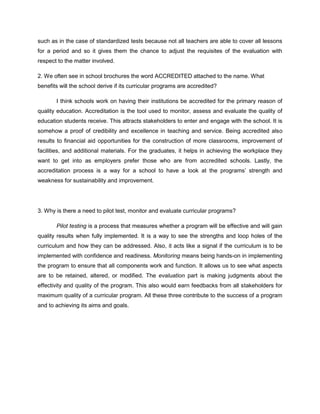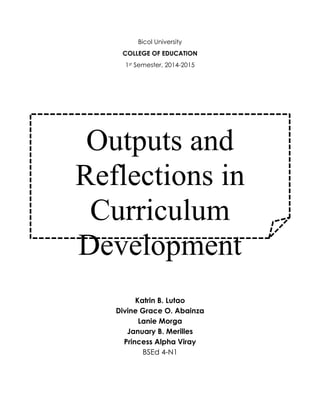The document summarizes Katrin B. Lutao's reflections on various activities related to curriculum development. For activity 4 on tertiary education curriculum, Lutao prefers a learner-centered design as it prioritizes students' needs, styles, and development. For modifications, Lutao suggests balancing poetry with other forms of writing in the college curriculum. Lutao also notes that curriculum design impacts teaching and learning approaches.





